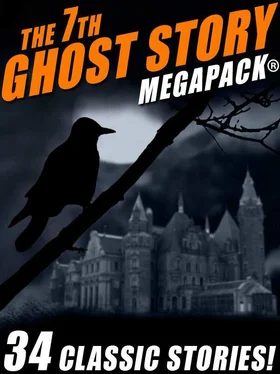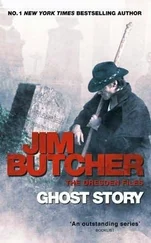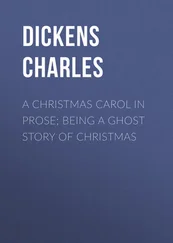After a pause, he added: “What I am going to tell you is known to no one else, and must not be mentioned by you—anyhow, in my lifetime. You know now that, owing to the death of my father when quite young, I and my brother and sister were brought up here with our grandfather, Sir Richard. He was an old, imperious, hot-tempered man. I will tell you what I have made out of a matter that was a mystery for long, and I will tell you afterwards how I came to unravel it. My grandfather was in the habit of going out at night with a young under-keeper, of whom he was very fond, to look after the game and see if any poachers, whom he regarded as his natural enemies, were about.
“One night, as I suppose, my grandfather had been out with the young man in question, and, returning by the plantations, where the hill is steepest, and not far from the chalk-pit you remarked on yesterday, they came upon a man who, though not actually belonging to the country, was well known in it as a sort of traveling tinker of indifferent character and a notorious poacher. Mind this, I am not sure it was at the place I mention; I only now surmise it. On the particular night in question, my grandfather and the keeper must have caught this man setting snares; there must have been a tussle, in the course of which, as subsequent circumstances have led me to imagine, the man showed fight, and was knocked down by one or the other of the two—my grandfather or the keeper. I believe that after having made various attempts to restore him, they found that the man was actually dead.
“They were both in great alarm and concern—my grandfather especially. He had been prominent in putting down some factory riots, and had given orders to the military to fire, whereby several lives had been lost. There was a vast outcry against him, and a certain political party had denounced him as an assassin. No man was more vituperated; yet now, in my conscience, I believe he acted with both discretion and pluck, and arrested a mischievous movement that might have led to much bloodshed. Be that as it may, my impression is that he lost his head over this fatal affair with the tinker, and that he and the keeper together buried the body secretly, not far from the place where he was killed. I now think it was in the chalk-pit, and that the skeleton found years after there belonged to this man.”
“Good heavens!” I exclaimed, as at once my mind rushed back to the figure with the fur cap that I had seen against the window.
Sir Francis went on: “The sudden disappearance of the tramp, in view of his well-known habits and wandering mode of life, did not for some time excite surprise; but, later on, one or two circumstances having led to suspicion, an inquiry was set on foot, and among others, my grandfather’s keepers were examined before the magistrates. It was remembered afterwards that the under-keeper in question was absent at the time of the inquiry, my grandfather having sent him with some dogs to a brother-in-law of his who lived upon the moors; but whether anyone noticed the fact, or if they did, preferred to be silent, no observations were made. Nothing came of the investigation, and the whole subject would have been dropped if it had not been that two years later, for some reasons I do not understand, but at the instigation of a magistrate recently imported into the division, whom my grandfather greatly disliked, and who was opposed to him in politics, a fresh inquiry was instituted. In the course of that inquiry it transpired that, owing to some unguarded words dropped by the under-keeper, a warrant was about to be issued for his arrest. My grandfather, who had a fit of the gout, was away from home at the time, but on hearing the news he came home at once. The evening he returned he had a long interview with the young man, who left the house after he had supped in the servants’ hall. It was observed that he looked much depressed. The warrant was issued the next day, but in the meantime the keeper had disappeared. My grandfather gave orders to his people to do everything in their power to assist the authorities in the search that was at once set on foot, but was unable himself to take any share in it.
“No trace of the keeper was found, although at a subsequent period rumors circulated that he had been heard of in America. But the man having been unmarried, he gradually dropped out of remembrance, and as my grandfather never allowed the subject to be mentioned in his presence, I should probably never have known anything about it but for the vague tradition which always attaches to such events, and for this fact, that after my grandfather’s death, a letter came addressed to him from somewhere in the United States from some one—the name different from that of the keeper—but alluding to the past, and implying the presence of a common secret, and, of course, with it came a request for money. I replied, mentioning the death of Sir Richard, and asking for an explanation. I did get an answer, and it is from that that I am able to fill in so much of the story. But I never learned where the man had been killed and buried, and my next letter to the fellow was returned with ‘deceased’ written across it. Somehow, it never occurred to me till I heard your story that possibly the skeleton in the chalk-pit might be that of the poaching tinker. I will now most assuredly have it buried in the churchyard.”
“That certainly ought to be done,” said I.
“And,” said Sir Francis, after a pause, “I give you my word—after the burial of the bones, and you are gone, I will sleep for a week in the bed in the gallery, and report to you if I see or hear anything. If all be quiet, then—well, you form your own conclusions.”
I left a day after. Before long I got a letter from my friend, brief, but to the point: “All quiet, old boy; come again.”
THE GHOST OF THE COUNT,
by Anonymous
Taken from Twenty-Five Ghost Stories (1904).
Not far from the Alameda, in the City of Mexico, there is a great old stone building, in which once lived a very wealthy and wicked Spanish count. The house has about four floors, and ninety rooms, more or less. The entire fourth floor is rented and occupied by a big American firm, and their bookkeeper, an American girl, has given us the following true account of the ghost that for years haunted the building. The second floor is unoccupied, as no one cares to live there for obvious reasons. And the bottom floor is also unoccupied, save for lumber rooms, empty boxes and crates and barrels. And last of all is the great patio with its tiled floor, where secretly in the night a duel was fought to the death by the wicked count and a famous Austrian prince, who was one of Maximilian’s men. The count was killed.
No one knows why the duel was fought; some say it was because of a beautiful Spanish woman; some say that it was because of treasure that the two jointly “conveyed,” and which the count refused to divide with his princely “socio,” and more people—Mexicans—shrug their shoulders if you ask about it, and say, “Quien sabe?”
“I saw a ghost here last night, Miss James,” announces our cashier with much eclat and evident pride.
So great is the shock that I gasp, and my pen drops, spattering red ink on my nice fresh cuffs, and (worse luck!) on the ledger page that I had just totted up. It is ruined, and I will have to erase it, or—something! Wretched man!
“I wish to goodness it had taken you off,” I cry, wrathfully, as I look at the bespattered work. “Now will you just look here and see what you have done? I wish you and your ghosts were in—”
“Gehenna?” he inquires, sweetly; “I’ll fix that—it won’t take half a minute. And don’t look so stern, else I won’t tell you about the ‘espanto.’ And you will be sorry if you don’t hear about it—it would make such a good story.” (Insinuatingly.)
Читать дальше












